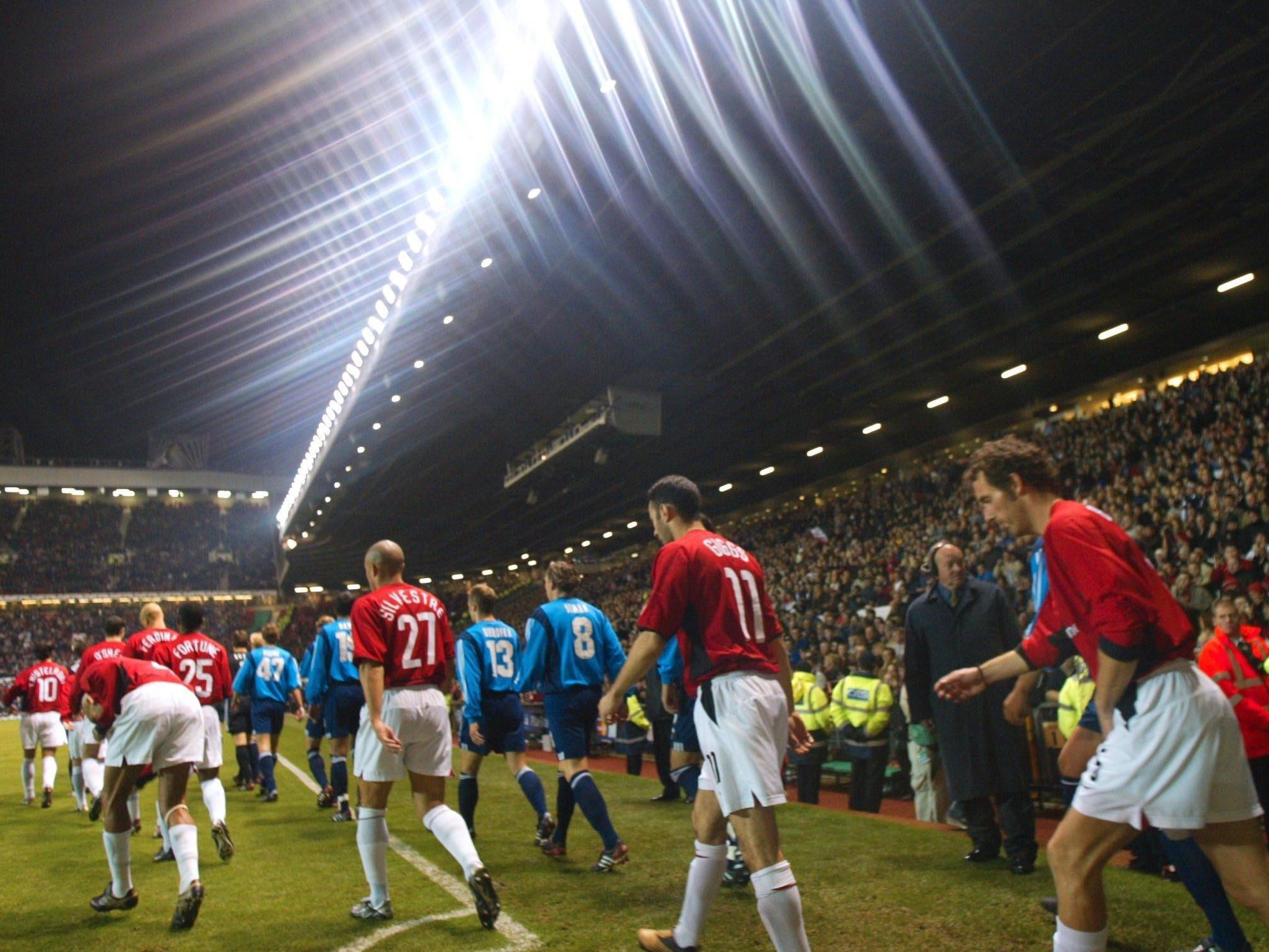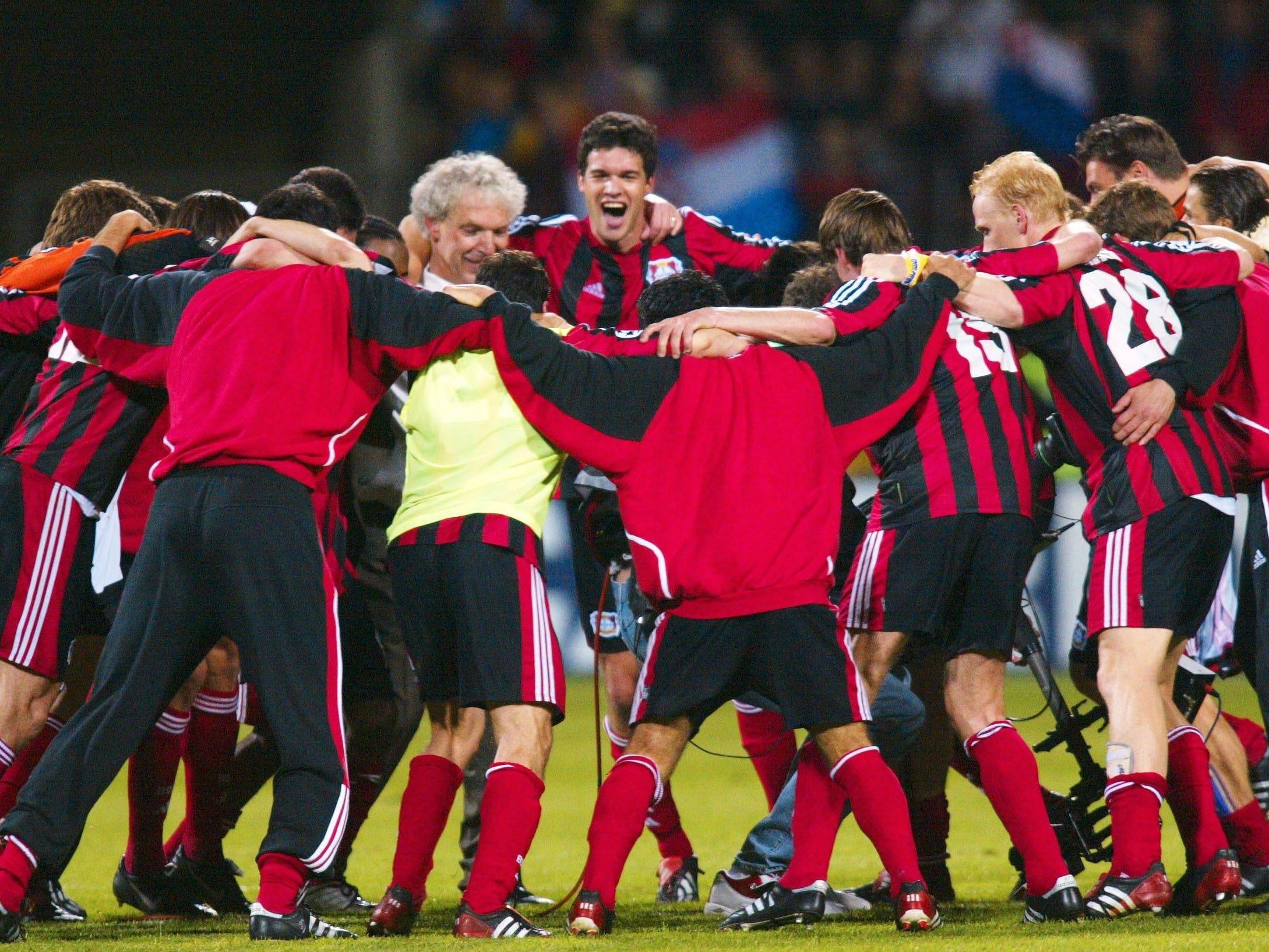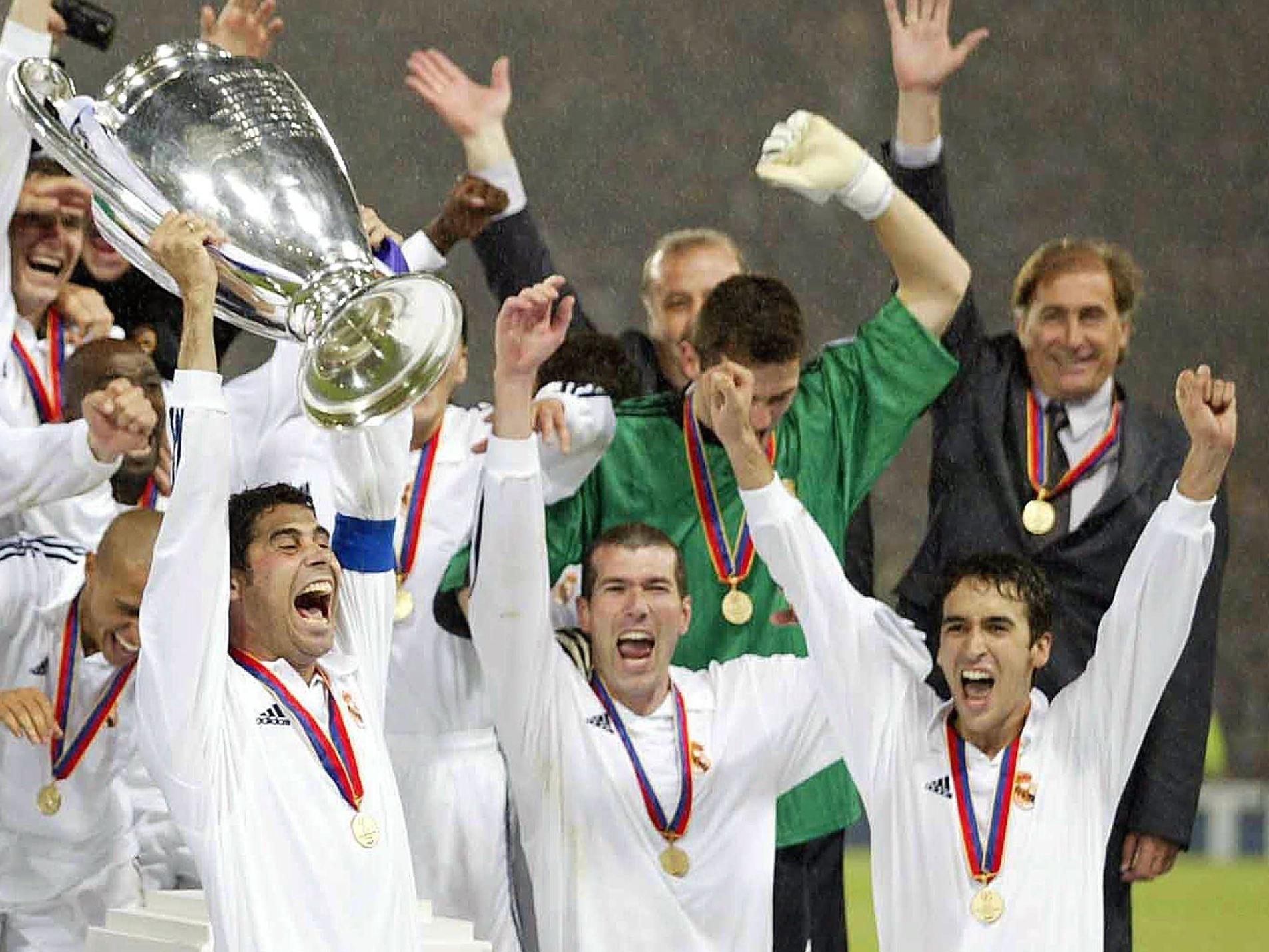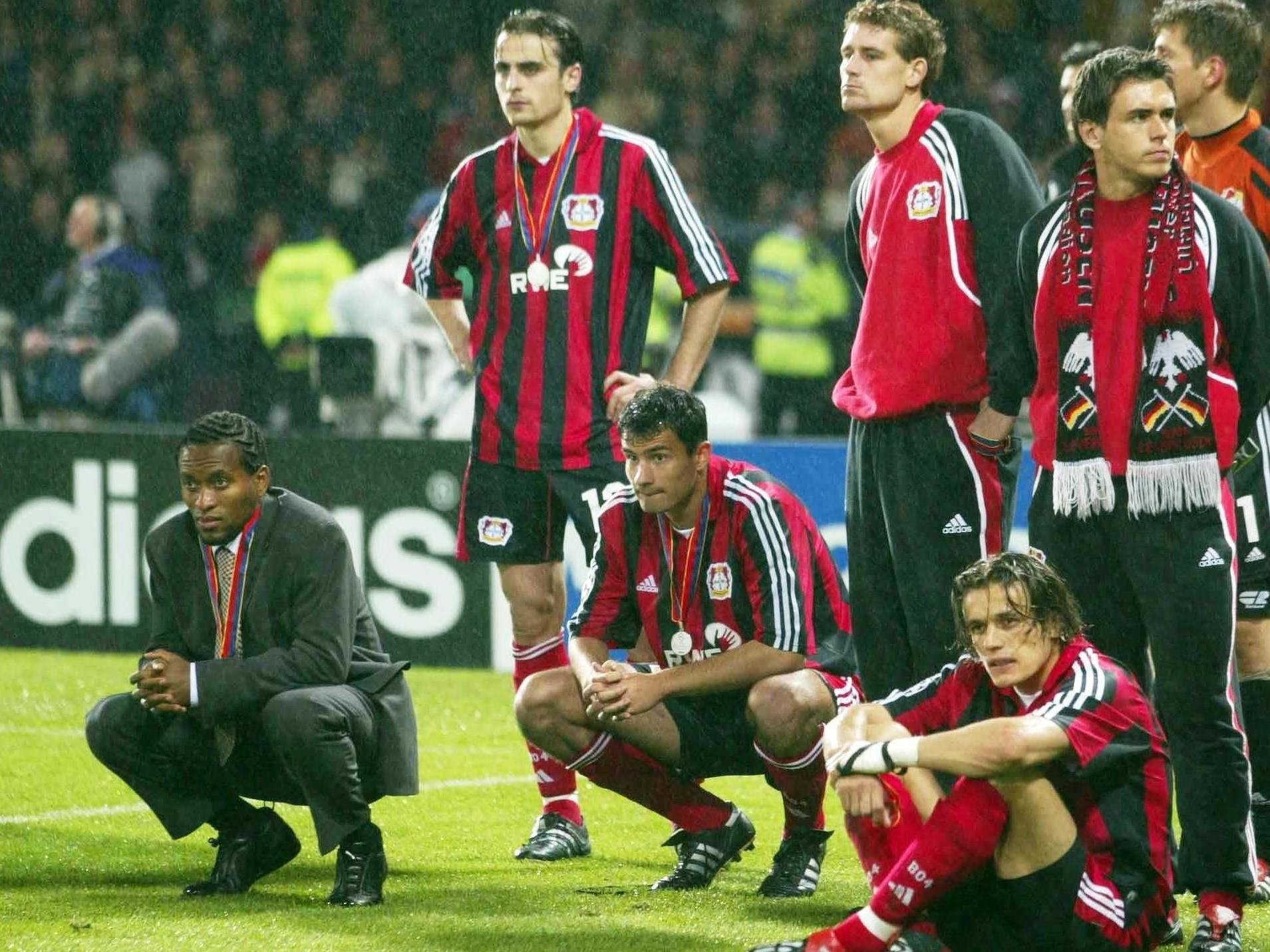Champions League final 2019: What Tottenham's class of 2019 can learn from Bayer 'Neverkusen'
The German side's journey in 2002 is testament to how great teams do not always need a trophy to prove themselves to anyone. Sometimes the story and the memories have a power of their own

Your support helps us to tell the story
From reproductive rights to climate change to Big Tech, The Independent is on the ground when the story is developing. Whether it's investigating the financials of Elon Musk's pro-Trump PAC or producing our latest documentary, 'The A Word', which shines a light on the American women fighting for reproductive rights, we know how important it is to parse out the facts from the messaging.
At such a critical moment in US history, we need reporters on the ground. Your donation allows us to keep sending journalists to speak to both sides of the story.
The Independent is trusted by Americans across the entire political spectrum. And unlike many other quality news outlets, we choose not to lock Americans out of our reporting and analysis with paywalls. We believe quality journalism should be available to everyone, paid for by those who can afford it.
Your support makes all the difference.A young group of players who had never won anything together before. An unexpected run to the final taking some of Europe’s prize scalps. A sense of dizzying momentum as they got further and further than anyone expected. And then the vertigo of the final, up against a far more experienced side, knowing that a chance this good may never come again.
For Tottenham Hotspur in 2019, read Bayer Leverkusen in 2002.
Their Champions League season will forever be remembered for the way that it ended, in 2-1 defeat to the first galactico team, beaten by Zinedine Zidane’s balletic volley at Hampden Park. But they deserve to be more than just a historical footnote. This was one of the great over-achieving campaigns of the modern era, up there with Porto 2004 but for the fact they did not lift the trophy.
And while reaching Hampden Park was a one-off, there was nothing new about this Bayer Leverkusen team being so good. Building up to this season they had finished second, third, second, second and fourth in the Bundesliga, a run of consistent high performance, without quite winning it, itself reminiscent of Spurs’ recent Premier League seasons. So at the start of that season - 2001-02 - the club’s focus was on finally winning that title. The Champions League was just seen as a bonus.
As it happens, Leverkusen ended up with nothing. They were pipped to the title again, and then they lost the DFB Pokal final to Schalke 04 four days before Hampden Park too. That earned them the tag ‘Neverkusen’ - and the club has still not won a major trophy since 1993 - but their journey is testament to how great teams do not always need a trophy to prove themselves to anyone. Sometimes the story and the memories have a power of their own.
This was also a team that had been expertly put together. They had a core of leaders in Ulf Kirsten, Carsten Ramelow and Jens Nowotny, they had astute South American imports in Lucio, Diego Placente and Ze Roberto, they had future stars in a young Dimitar Berbatov and Michael Ballack. Throw all of those together with the charismatic, outgoing manager Klaus Toppmoeller and they had a dangerous mix. Able to achieve more than richer sides who just threw money at it. “Yes, we did not have the top-notch resources and name as a team,” Ramelow told The Independent. “But in 2002 we really had a high number of excellent players with astonishing qualities. We were probably underestimated!”
But right from the start of the campaign this year felt different. They had to start in the third qualifying round, impressively beating a good Red Star Belgrade team in the sweltering heat of early August. The real moment of realisation came in the first group stage when they beat Barcelona 2-1 at home.
“After beating Barcelona at home the confidence grew,” remembers Tor-Kristian Karlsen, who was their international scouting director, still in his 20s but travelling with team management to games. “Both the players and the managers were thinking, ‘we can do well here, we belong at this level.” After winning 2-1 away at Fenerbahce, they were on the brink of progress. “At the end of the game in Istanbul some of the club staff were starting to joke ‘see you in Glasgow!’ with the UEFA delegates,” Karlsen remembers. “But there was still a lot of work to be done.”
“From matchday to matchday we as individual players and together as a team definitely gained self-consciousness,” Ramelow remembers. “Of course, after several wins in the champions league the momentum increased resulting in a very close team bonding.”
This was the brief of the second group stage, though, so after Leverkusen made it through they had to do it all over again. Progress was in the balance - they lost 4-1 at Highbury - but 3-1 wins over Juventus and Deportivo in their last two games was enough to send them through to the quarter-finals. It felt as if this was a team who had generated its own sense of self-belief, that nothing could faze them.

It was Gerard Houllier’s Liverpool in the quarter-finals, and Leverkusen looked up against it after losing 1-0 at Anfield. But they fought back with a compelling 4-2 win at home, Lucio grabbing the winner with just six minutes left on the clock. More than anyone else, the Brazilian centre-back encapsulated the spirit of the team. “Lucio was spectacularly good,” remembers Karlsen. “He didn’t know what fear was. And the same went for many of the other players. They had no reason to believe that they couldn’t beat the best sides in Europe.”
And there was no-one better in Europe at this point than Manchester United. They had won three straight Premiership titles but were desperate this season to regain the European crown they won in 1999. Roy Keane was at his absolute peak and Ruud van Nistelrooy had given United an extra edge up front. Sir Alex Ferguson wanted to fulfill his destiny of managing in a Champions League final at Hampden Park.
But Bayer Leverkusen silenced Old Trafford, twice pulling them back to dig out a 2-2 away draw in the first leg. That gave them an advantage back in Germany, and Oliver Neuville’s equaliser cancelled out Roy Keane’s opener, sending them through to the final.

Dimitar Berbatov said that the meaning of what the team were doing only hit them late. "We were a team who enjoyed playing," he told The Independent last month. "Nobody gave us a chance, but then when you go to Man United in semi-final, especially after the first leg and start thinking ‘wait a minute, we have a chance to be in the final’. Until this point you are just wondering ‘what we doing here?’ You just play. But then all of a sudden, it's 'OK, we have a chance to write history.' Then when you reach the final, then it hits you: OK, we are here."
It was more than anyone expected at the start of the season, but they went to Scotland facing the one side even stronger than Manchester United: the galacticos of Real Madrid: Zidane, Luis Figo, Roberto Carlos, Raul and the rest.
Of course Leverkusen were underdogs but having got this far, and beaten so many good teams, they were in no mood to stop. “Once in Glasgow there wasn’t a person connected with Bayer 04 Leverkusen who didn’t believe we could beat Real Madrid in the final,” Karlsen remembers.

The fact that Real Madrid were serial winners and Leverkusen were not did not even matter either. Asked whether they felt any extra pressure because of that lack of winning experience, Ramelow says no: “That thought was not in our mindset, when you’re on the field there is simply no time to think about such a thing. You rather think the opposite: together we can achieve something as an underdog, creating a positive attitude among the team.”
And it worked: Leverkusen played very well, but they only took one of their chances, while Madrid scored two of theirs. “The game could have gone either way, and the chances that were created towards the end would’ve gone in on another day,” Karlsen says. “Iker Casillas, who came on for the injured Cesar, pulled off some stunning saves. The performance was actually beyond what could’ve been expected – and let’s not forget that we had to make do without Ze Roberto and Jens Nowotny.”
So Leverkusen ended with nothing and of course that means they have now been accused of being ‘bottlers’. Karlsen and Ramelow remember it differently, that they were simply beaten by a strong opponent in a tight final. But in Spurs’ own run to Madrid this year, 17 years on, they see something familiar.

“You can see similarities,” Karlsen says. “For Spurs I would say it’s the momentum from the Champions League campaign. Both them and Leverkusen beating so many opponents they weren’t expected to, both with some late goals and drama. These things create real belief and togetherness. Tottenham’s incredibly dramatic away legs in the quarter and semi-finals must surely have given them a real confidence that they can win, despite their lack of trophies to date.”
“Both teams can be compared as Tottenham was not one of the favourites to win the trophy this year,” Ramelow says. “Like Leverkusen they are rather inexperienced, but also really challenging to play against. They are not a big player, and they simply have a superb team bonding, as we saw during the last game against Ajax. If you play like this, anything is possible."
But the Spurs players must realise, according to Berbatov, that this could be their only chance. "Maybe they have never reached a final of this calibre before, and maybe they won't again," he said. "Some players have four or five Champions League wins, some have lost three finals, like myself. Spurs will be thinking for themselves, nobody gave us a chance to be here. For some of them, maybe it's going to be the only final of their lives. So they need to take it."
Join our commenting forum
Join thought-provoking conversations, follow other Independent readers and see their replies
Comments